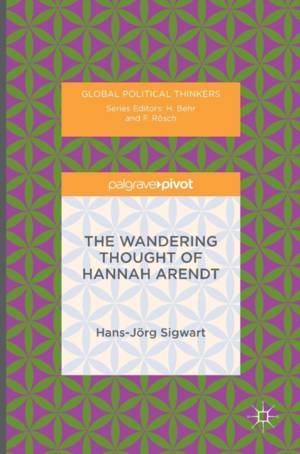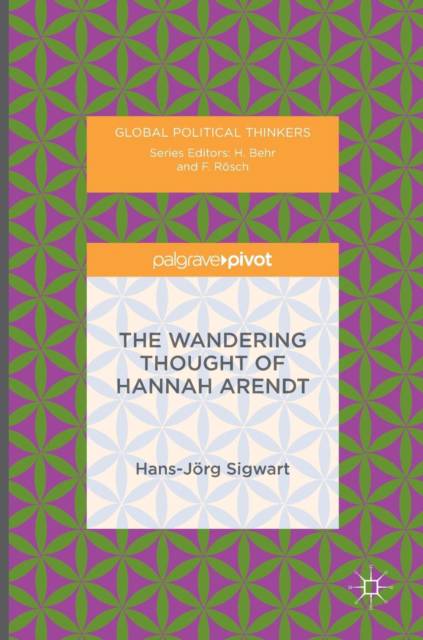
Bedankt voor het vertrouwen het afgelopen jaar! Om jou te bedanken bieden we GRATIS verzending (in België) aan op alles gedurende de hele maand januari.
- Afhalen na 1 uur in een winkel met voorraad
- In januari gratis thuislevering in België
- Ruim aanbod met 7 miljoen producten
Bedankt voor het vertrouwen het afgelopen jaar! Om jou te bedanken bieden we GRATIS verzending (in België) aan op alles gedurende de hele maand januari.
- Afhalen na 1 uur in een winkel met voorraad
- In januari gratis thuislevering in België
- Ruim aanbod met 7 miljoen producten
Zoeken
Omschrijving
This book interprets Hannah Arendt's work as a "wandering" type of political theory. Focusing on the sub-text of Arendt's writings which questions "how to think" adequately in political theory whilst categorically refraining from explicitly investigating meta-theoretical questions of epistemology and methodology, the book characterizes her theorizing as an oscillating movement between the experiential positions of philosophy and politics, and by its distinctly multi-contextual perspective. In contrast to the "not of this world" attitude of philosophy, the book argues that Arendt's political theory is "of this world". In contrast to politics, it refrains from being "at home" in any particular part of this world and instead wanders between the multiple horizons of the many different political worlds in time and space. The book explores how these two decisive motives of Arendt's theoretical self-perception majorly influence her epistemological, methodological and normative frame of reference and inspire her understanding of major concepts, including politics, judgment, understanding, nature, and space.
Specificaties
Betrokkenen
- Auteur(s):
- Uitgeverij:
Inhoud
- Aantal bladzijden:
- 147
- Taal:
- Engels
- Reeks:
Eigenschappen
- Productcode (EAN):
- 9781137482143
- Verschijningsdatum:
- 30/12/2015
- Uitvoering:
- Hardcover
- Formaat:
- Genaaid
- Afmetingen:
- 153 mm x 216 mm
- Gewicht:
- 312 g

Alleen bij Standaard Boekhandel
+ 167 punten op je klantenkaart van Standaard Boekhandel
Beoordelingen
We publiceren alleen reviews die voldoen aan de voorwaarden voor reviews. Bekijk onze voorwaarden voor reviews.









